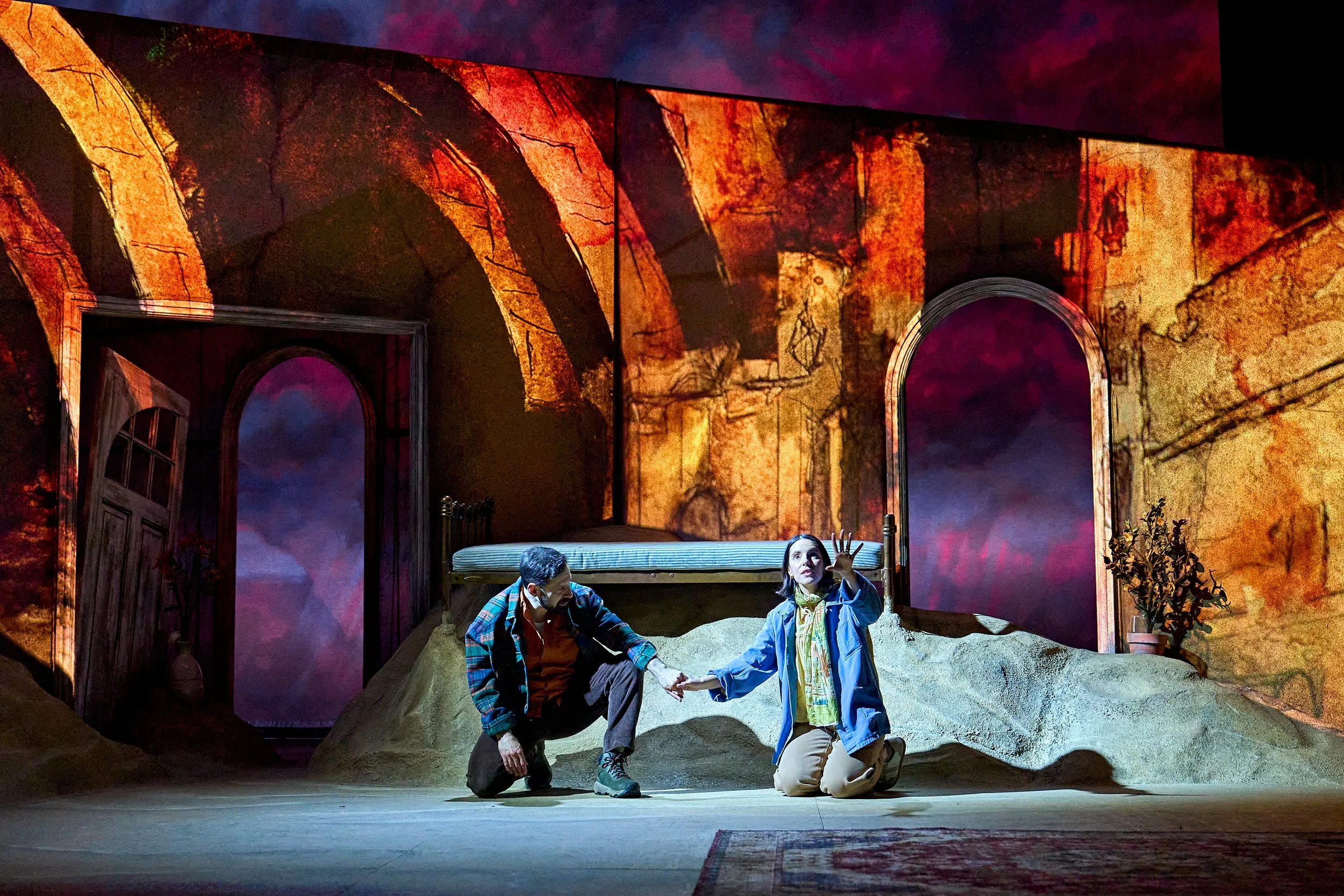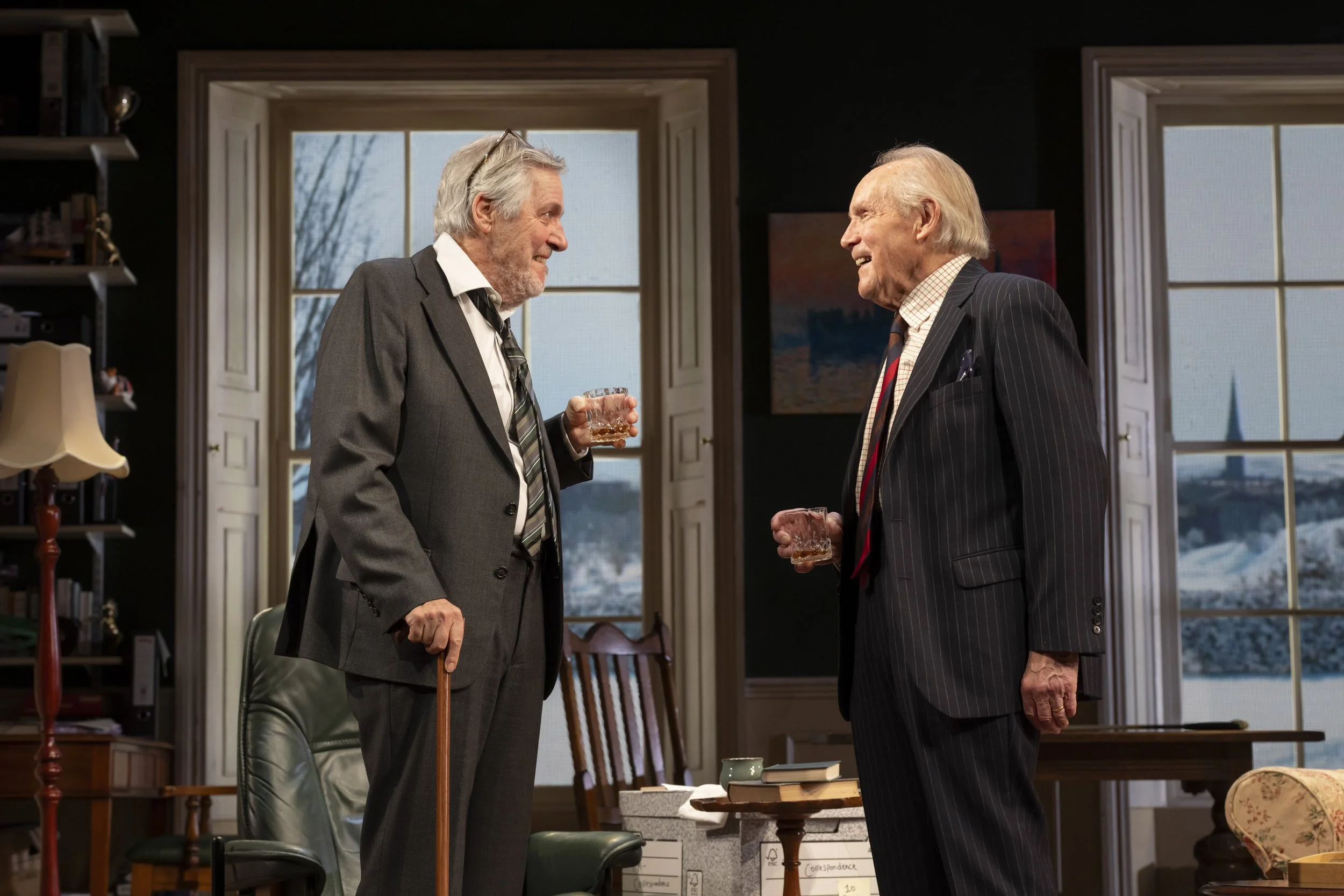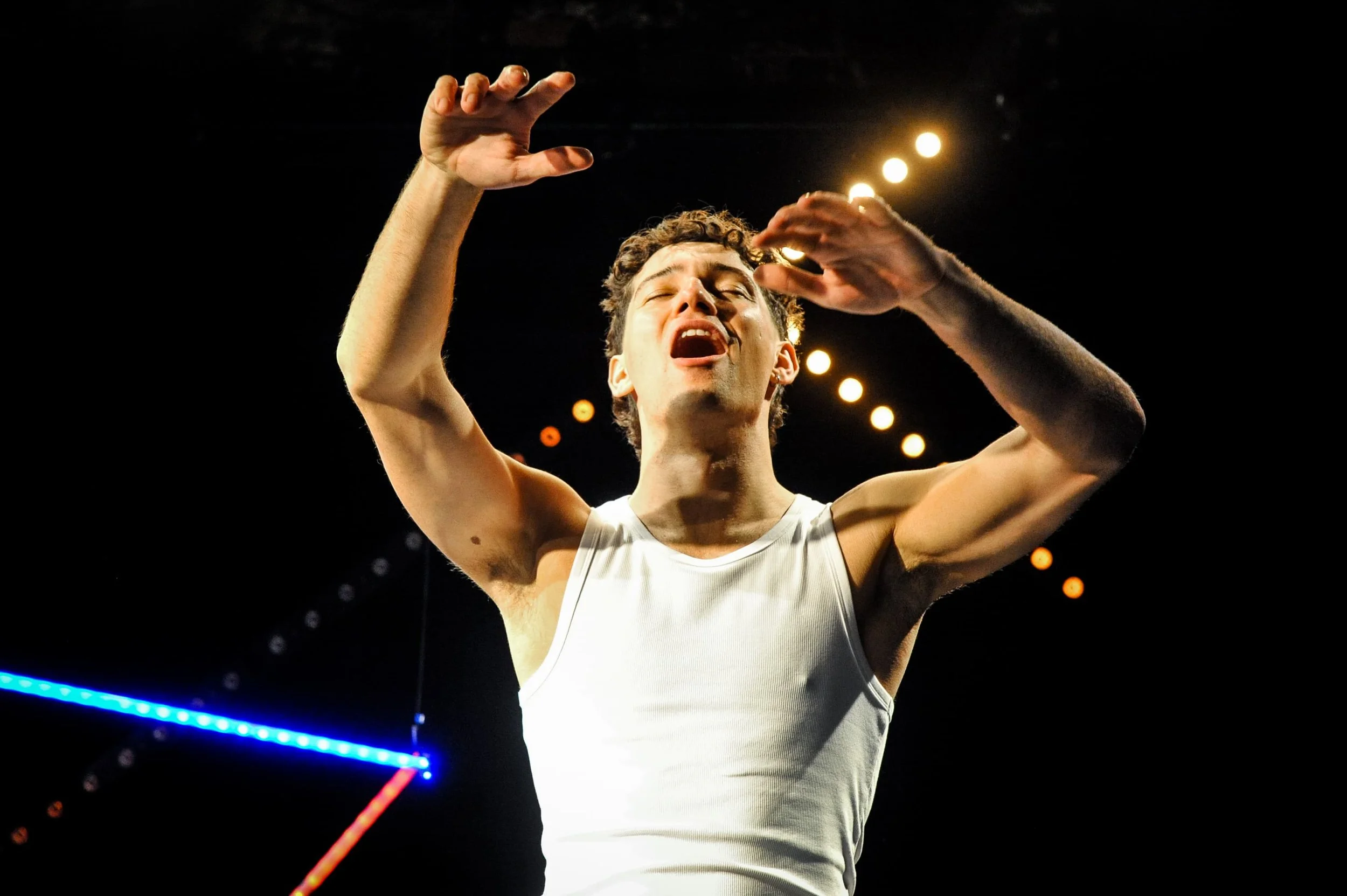Moby Dick at Tower Theatre Review
Written by Paris for Theatre & Tonic
Disclaimer: Gifted tickets in exchange for an honest review
Moby Dick has always been a story I enjoy revisiting in different forms and adaptations. That’s surprising, considering that nothing else from its time period or aesthetic usually resonates with me in the same way. But there’s something in its clarity, its clean narrative arc, and existential depth that continues to feel compelling. It is a very simple story, yet never simplistic - and I find that a rare and powerful quality in the arts. This new Tower Theatre production of Moby Dick, adapted by Paul Graves and Angharad Ormond, shares that very same quality, and for that alone, it should be considered a success.
The creative team delivers a thoughtful and atmospheric piece. The production uses original music, composed by Colin Guthrie, and an ensemble cast that doubles as a chorus, using song and physical theatre to create both tone and texture. Nick Hall’s performance as Captain Ahab is gripping and unforgettable. He perfectly captures the self-destructive obsession at the heart of the story, standing as a chilling portrait of toxic masculinity, a man who would rather destroy his crew, abandon his family, and drown the world than let go of his wounded pride.
The entire cast contributes with strong, textured performances that deepen the production’s atmosphere. Particularly memorable is Flavia Di Saverio, who shines in multiple roles with great physicality and comedic finesse, offering a necessary comic relief in this otherwise bleak and haunting tale. Mayank Adlakha’s portrayal of Pip stands as the emotional centre of the story, tragic and comic at once, embodying the corrosive psychological impact of life at sea and of being caught in the wake of Ahab’s madness. His performance is bold, aching, and powerfully human.
The direction is sharp and inventive. Ormond’s makes brilliant use of physical theatre and stage imagery, with one of the most striking choices being the all-female chorus of different ages, body types, and backgrounds. Watching them become the shifting ropes of ship rigging, the ocean waves, or even Moby Dick herself was both powerful and refreshing. It was a true act of imaginative inclusivity, not in the surface-level, box-ticking sense, but as a meaningful reinterpretation of the novel’s themes.
One standout moment was the crew’s brutal ritual in which a whale is captured, strung up, and violently dissected. Performed through the body of a female chorus member, this moment says more about violence, conquest, and domination than any line of dialogue could. Another highlight was the haunting representation of Ahab’s regrets. Flashbacks to the family he left behind were beautifully staged, with the image of his child represented only through a white sheet manipulated into shape by multiple performers - untouchable, fragile, and always just out of reach. It’s a deeply moving metaphor, and it allows the production to add depth and sadness to Ahab’s madness without excusing it. His rage, ultimately, is directed at nature itself, at a creature that acts on instinct, that refuses to be controlled or explained. Trying to defeat such a force is not heroism, it is plain delusion.
The lighting design, particularly in scenes of celebration and chaos on the ship, adds texture and tension to the production’s tone. These moments feel alive and cinematic, but still intimate enough not to overpower the rawness of the performances.
Still, not everything flows as well as it should. With such a large cast on stage at times (players, chorus, musicians) the energy occasionally tips into chaos. Rather than stylised, it sometimes felt simply unfocused. Bodies weren’t always coordinated, making the stage feel noisy and visually overwhelming. A touch more structure or choreographic clarity in these ensemble moments could elevate the production further.
Yet this is a minor flaw in an otherwise captivating show. Moby Dick, as presented here, is a gripping, thoughtful adaptation that finds freshness in a story we all think we know. And in an age where climate catastrophe makes the force of nature more terrifying and vengeful than ever, its symbolism hits hard: you cannot defeat nature. You can only perish with it.
This is a production that should not be missed.
Moby Dick plays at the Tower Theatre until 6 July 2025
★★★★















